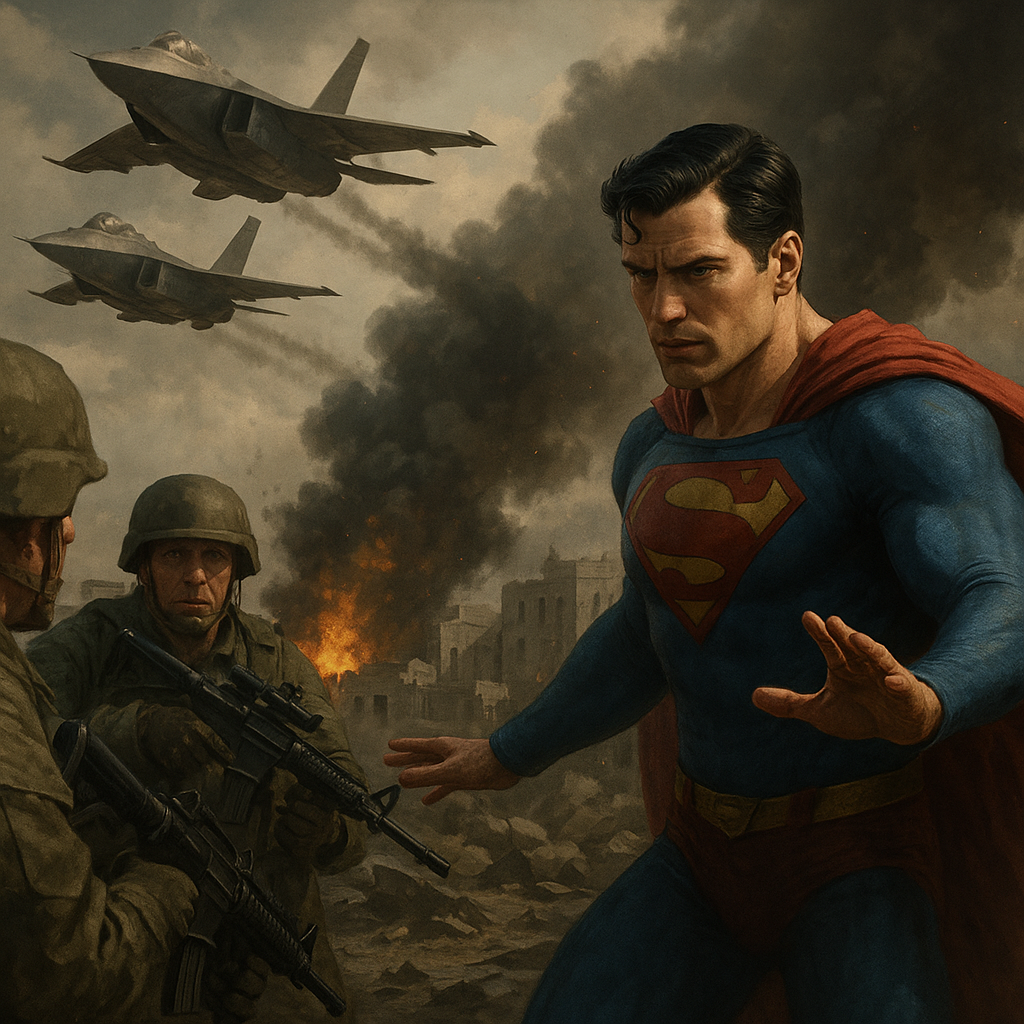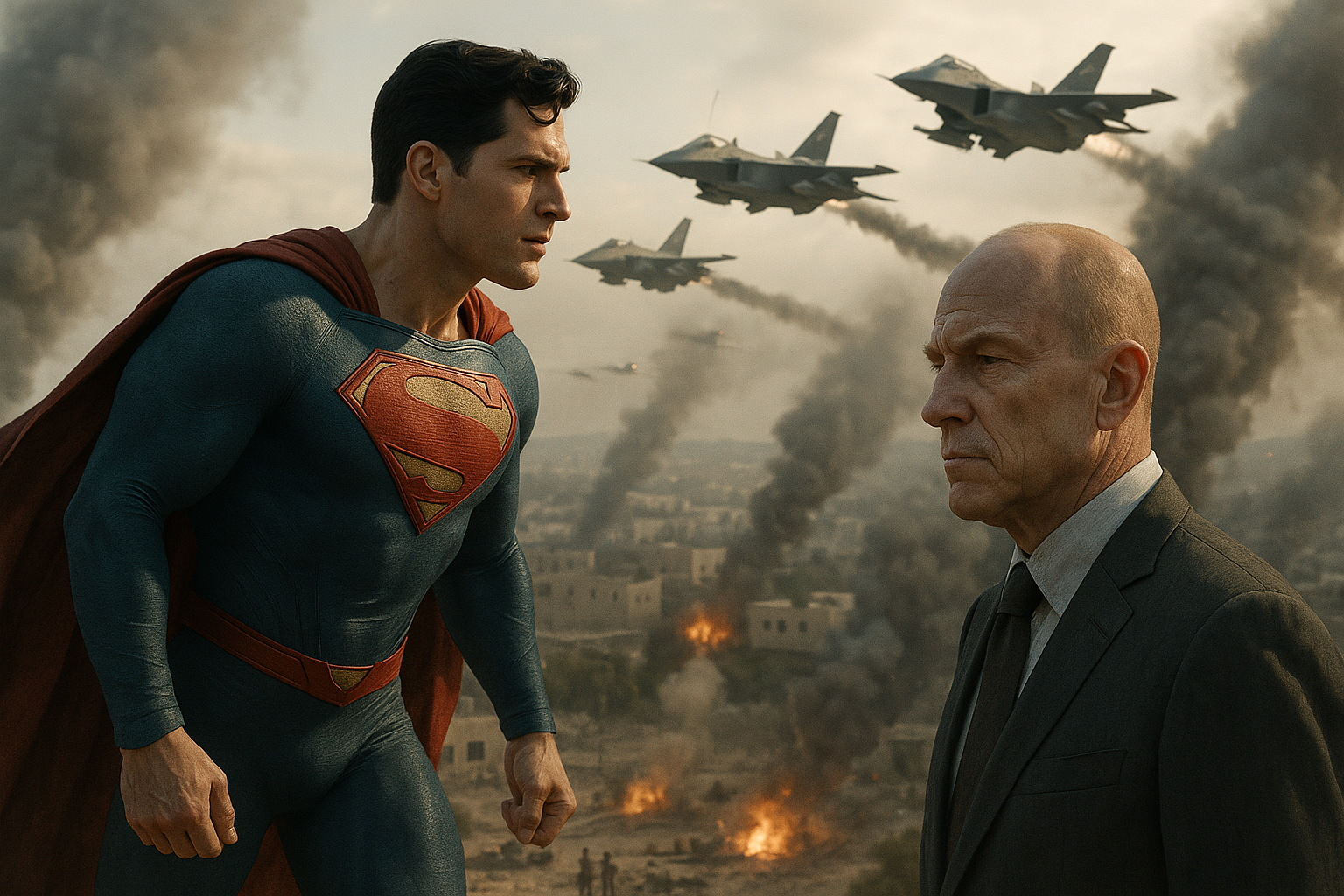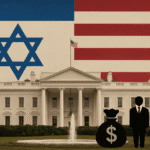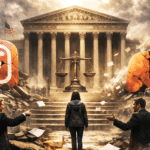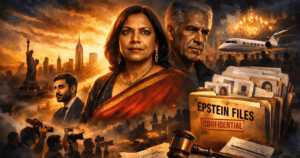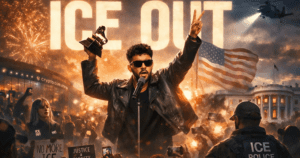The Washington Eye
For the past month, James Gunn’s Superman has been less of a film and more of a global phenomenon, a cultural inkblot onto which the world has projected its deepest anxieties. The release has ignited a firestorm of debate, carving social media into trenches and spawning endless video essays. At the heart of this storm is a potent and painful accusation: that the film is a thinly veiled anti-Semitic allegory. But this furious debate, however passionately waged, serves as a masterful distraction. It pulls our focus toward a battle of symbols while the film’s true villain—and perhaps our own—achieves his goals in the shadows.
The movie’s central conflict, as millions have now seen, is not with a costumed megalomaniac. Instead, Superman finds himself facing the formidable military of a technologically superior nation-state engaged in a brutal campaign against a weaker neighbor. The imagery is stark and deliberately unsettling. We see the familiar, primary-colored beacon of hope flying against a sky filled with the cold, grey steel of advanced jets. When he moves to shield civilians from an onslaught, he isn’t met with gratitude; he is condemned as a foreign meddler, an enemy combatant violating sovereign airspace.
It is not difficult to see why audiences worldwide have mapped the tragic, asymmetric contours of the Israeli-Palestinian conflict onto the film’s narrative. The on-screen military’s justifications about ensuring security, neutralizing threats, and the regrettable but necessary cost of collateral damage are broadcast in a language the 21st century understands intimately. It’s the dialect of modern warfare, one we have learned from decades of news reports. Therefore, it was almost inevitable that many would see a reflection of a long and painful history played out before them, leading to the explosive charge that the film was taking a side.
But this interpretation, however emotionally resonant, is a trap. It fixates on the soldiers while ignoring the architect of the war itself. The real antagonist, the force of pure, distilled cynicism in the film, is Lex Luthor.
Luthor is presented not as a cackling tyrant but as a visionary of corporate synergy, a celebrated innovator who speaks the language of progress. He is the film’s ultimate puppet master, playing a devastatingly effective two-front war. On one front, he is the engine of the conflict. His company, LexCorp, is not merely an arms dealer; it is a “global security solutions provider.” He sells the advanced weaponry, the surveillance systems, and the automated defenses that make the on-screen war so one-sided, profiting handsomely from every volley.
On the second front, he is the arbiter of the narrative. His global media empire doesn’t just report on the conflict; it curates reality. His networks platform retired generals who speak solemnly of surgical strikes, host panels of legal scholars who debate the illegality of Superman’s very existence, and publish editorials that frame compassionate intervention as a threat to the international order. He creates a fog of sophisticated disinformation where the only voice that sounds clear and rational is his own.
His motivation is not money, but philosophy. Luthor’s ultimate thesis is that humanity, in its quest for greatness, cannot be shackled by a sentimental, alien morality. He sees Superman’s empathy not as a virtue, but as a bug in the system of human progress. The war is his grand experiment to prove it. By creating a humanitarian crisis so profound that Superman’s conscience forces him to intervene, Luthor creates a perfect, unwinnable scenario for his foe.
If Superman ignores the slaughter, he is revealed as a fraud, an impotent god whose moral posturing is meaningless. His status as a symbol of hope is shattered. If he intervenes, as he does, he becomes a political actor. He is no longer a universal symbol of good but a partisan in a messy, mortal conflict, subject to the criticism, condemnation, and legal challenges of the very people he seeks to protect. Luthor’s goal is to drag Superman out of the sky and into the political mud, forcing the world to see him as just another power player to be distrusted.
This is the film’s true, chilling warning. The real-world debate over whether Superman is anti-Semitic is a participation in Luthor’s game. It takes a complex moral fable and flattens it into the binary, tribal conflict that Luthor himself exploits. It preoccupies us with the question of which side the hero is on, while ignoring the villain who ensures the war never ends.
The film holds up a mirror, and in it, we see a world that would rather tear a hero apart for his perceived political failings than confront the villains we quietly empower every day. The greatest threat is not the tank or the missile, but the sophisticated, well-funded narrative that teaches us who to hate, who to fear, and what wars to accept as a necessary price for progress.
